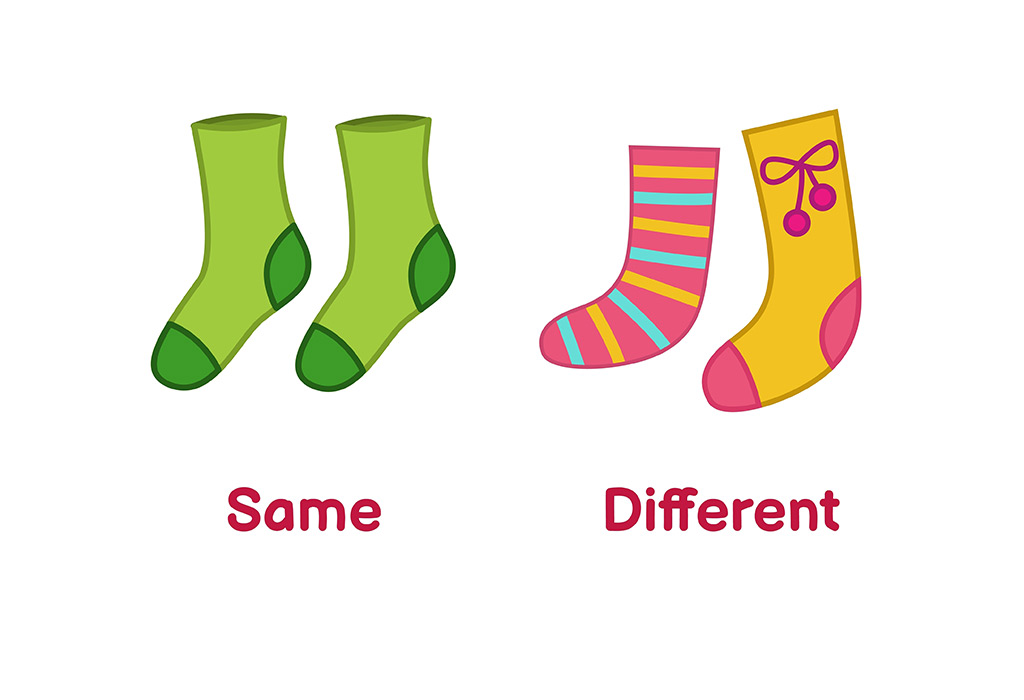Understanding How Different Blues Songs Connect With Anxiety
Have you ever felt a knot in your stomach, a quiet hum of worry that just won't go away? That feeling, often called anxiety, is something many of us experience, and it shows up in countless ways. It's interesting, isn't it, how something so personal can also feel so universal? Well, music, especially the blues, has a unique way of speaking to these deep feelings. We're going to explore how different blues songs connect with anxiety, offering a kind of mirror to our inner thoughts.
The blues, a truly American art form, has always been about expressing life's harder moments, the struggles, the heartaches, and yes, the worries. It's a style of music that doesn't shy away from the tough stuff, but rather, it embraces it. This makes it a powerful way to hear our own feelings reflected back, perhaps in a way that helps us feel less alone. So, how do these various tunes manage to capture such a wide range of anxious thoughts?
It may be different for each person, of course, how a song resonates, but there are always similarities in how human emotions are portrayed. Just as different people experience anxiety in their own distinct ways – perhaps as a general unease, or maybe as a sharp, sudden worry about something specific – different blues songs, with their varied sounds and stories, seem to speak to these distinct experiences. This article will help you understand how different blues song anxiety can truly be felt through the music.
- Chris Farley Passed Away
- Janet Von Schmeling
- Jon Hamm Wife
- Kevin Costner Whitney Houston
- Caleb Williams Girlfriend
Table of Contents
- What is Anxiety in the Context of Blues?
- The Heart of the Blues: A Voice for Trouble
- How Different Blues Styles Address Anxiety
- The Elements That Speak to Anxiety
- Listening to Blues for Connection
- Frequently Asked Questions About Blues and Anxiety
- Conclusion
What is Anxiety in the Context of Blues?
When we talk about anxiety, we're not always talking about a clinical diagnosis. Sometimes, it's just that feeling of being on edge, that persistent worry about what might happen next, or a general sense of unease. For instance, you know, it could be the weight of daily life, the fear of losing something precious, or even a quiet dread about the future. The blues, in its very essence, has always captured these human experiences, giving them a voice and a melody.
The meaning of "different" is partly or totally unlike in nature, form, or quality, and this applies very much to how anxiety shows up. Some people might feel a low-level, constant hum of worry, while others might experience sharp, sudden bursts of fear. The beauty of blues music is how it manages to reflect these varied forms of unease. It's not just one sad song; it's a whole spectrum of feelings put to music, which is really quite something.
The Heart of the Blues: A Voice for Trouble
The blues started as a way for people to express their hardships, their sorrow, and their resilience. It came from a place of deep feeling, often born from struggle and difficult times. This raw honesty is why it connects so powerfully with feelings like anxiety. It doesn't offer quick fixes or pretend everything is fine; instead, it acknowledges the trouble, which, you know, can be incredibly comforting in itself.
- Mathilda Ereni Gianopoulos
- Rob Lowe Wife
- Shiloh Hendrix Gofundme
- Mauricio Umansky Girlfriend
- Dove Cameron Boyfriend
This music provides a space for those feelings to exist, to be heard, and to be shared. It's a cathartic experience, letting out what's inside through the wail of a guitar or the heartfelt cry of a singer. In a way, it’s like a conversation with someone who truly understands what you're going through, even if they're long gone. It’s a very human form of expression, really.
How Different Blues Styles Address Anxiety
Just as anxiety can manifest in many forms, the blues itself has many faces. From the sparse, haunting sounds of the Delta to the electrified energy of Chicago, each style brings its own flavor to the expression of worry and struggle. Understanding these differences helps us see how different blues song anxiety can be explored through distinct musical textures.
Delta Blues: The Raw Edge of Worry
The Delta blues, with its often solo guitar and voice, feels incredibly personal and, in some respects, isolated. It comes from the rural South, reflecting a life of hard work and often, loneliness. This style can speak to a deep, pervasive sense of dread, the kind of anxiety that feels like it's just part of the landscape of your life. It’s raw, unpolished, and sometimes, frankly, a little unsettling.
Songs from this era often feature themes of being alone on the road, facing unknown dangers, or dealing with inescapable problems. The sparse instrumentation and often mournful vocals really capture that feeling of being vulnerable and exposed, which, you know, can resonate with feelings of existential worry or a generalized unease about the world. It’s a very direct expression of trouble.
Urban Blues: City Stress and Longing
As the blues moved from the fields to the cities, its sound changed, reflecting new kinds of anxieties. Urban blues, often featuring a full band, captures the hustle and bustle, the noise, and the sometimes overwhelming nature of city life. This style might speak to the anxiety of feeling lost in a crowd, the pressure of making a living, or the longing for something you can't quite reach. It's a bit more polished, but still full of feeling.
The themes often shift to relationship troubles, financial worries, or the feeling of being trapped in a difficult situation. The faster tempos and more complex arrangements can sometimes mirror the racing thoughts that come with situational anxiety, that feeling of being caught in a whirlwind. You know, it's a different kind of worry, but just as real.
Chicago Blues: Power and Struggle
Chicago blues, with its amplified guitars and driving rhythms, has a powerful, almost defiant energy. While still expressing hardship, it often carries a sense of fight, a determination to push through. This style can resonate with the anxiety that comes from feeling powerless, but also the urge to reclaim control. It's a louder, more assertive kind of blues, which, you know, can be quite invigorating.
The heavy beat and electric sound can feel like the pounding heart of someone facing down their fears. It’s about confronting problems head-on, even when the outcome is uncertain. For those who experience anxiety as a feeling of being overwhelmed, Chicago blues offers a sense of strength and a reminder that even in struggle, there's a kind of power. It’s a very dynamic expression of feeling.
Blues Ballads: Heartache and Resignation
Blues ballads, often slower and more melodic, focus on deep heartache, loss, and sometimes, a quiet resignation to fate. This style can speak to the profound sadness that often accompanies anxiety, especially when worries feel inescapable or when a loss triggers deep emotional pain. It's a bit like a long, mournful sigh, if you think about it.
These songs allow for a slow, gentle exploration of sorrow, giving space to feelings that might otherwise feel too big to handle. They don't rush the emotion; they let it unfold, which, you know, can be a very calming experience for someone dealing with persistent worry or grief. It’s a very tender way to approach difficult feelings.
Upbeat Blues: Finding Resilience
Not all blues is slow and sad. Many blues songs are surprisingly upbeat, even joyful, often found in jump blues or certain boogie-woogie styles. These songs, despite their underlying themes of hardship, focus on resilience, finding a way to keep going, and even celebrating small victories. This kind of blues can be incredibly helpful for shifting perspective when anxiety feels overwhelming. It’s almost, you know, a kind of musical pick-me-up.
They remind us that even when things are tough, there's still rhythm, there's still movement, and there's still hope. For someone feeling stuck in a cycle of worry, these songs can offer a gentle nudge towards finding strength and a lighter outlook. They show that even with problems, life goes on, and there’s always a chance for things to get better. It’s a very optimistic take on struggle.
The Elements That Speak to Anxiety
Beyond just the style, certain parts of blues music itself contribute to its ability to connect with feelings of anxiety. These elements work together to create a powerful emotional experience. It's really quite clever, when you consider it.
Lyrics: The Stories We Tell
The words in blues songs are often simple, direct, and incredibly relatable. They tell stories of everyday struggles: money troubles, relationship woes, loneliness, and the feeling of being mistreated. These narratives, you know, often mirror the very things we worry about in our own lives. When a singer laments about "trouble in mind," it's easy to see our own anxieties reflected there.
The repetition of certain phrases, common in blues lyrics, can also be like the looping thoughts that come with anxiety. Yet, this repetition can also be comforting, a way of processing and acknowledging the feeling rather than trying to push it away. It’s a very honest way of expressing things.
Instrumentation: The Sound of Feeling
The instruments in blues music, especially the guitar, often mimic the human voice in their expressiveness. A bent note on a guitar can sound like a sigh, a cry, or a moan. The harmonica can wail like a lonely soul. These sounds, you know, tap into something primal within us.
The raw, sometimes distorted, sound of a blues guitar can feel like the tension in our bodies when we're anxious. The steady, often simple, rhythm section can be like the persistent beat of worry. Yet, the way these instruments interact can also provide a sense of release, a kind of musical letting go. It’s a very evocative sound.
Vocal Delivery: The Voice of the Soul
The way a blues singer delivers the words is perhaps the most powerful element. It's not just about hitting the notes; it's about conveying the raw emotion. The vocal delivery can range from a whispered lament to a powerful shout, each expressing a different facet of human struggle and feeling. This, you know, is where the real connection happens.
A singer's strained voice can speak to the feeling of being overwhelmed, while a strong, clear voice can convey defiance in the face of trouble. It's this authentic expression, this raw honesty in the voice, that truly helps us feel seen and heard when we listen to how different blues song anxiety is presented. It’s a very direct way to share feeling.
Listening to Blues for Connection
So, how can listening to blues music help with anxiety? It’s not a cure, of course, but it offers a unique kind of comfort. When you hear a blues song that truly resonates, it can feel like someone else understands exactly what you're going through. This shared experience can reduce feelings of isolation, which often come with anxiety. It’s a bit like finding a kindred spirit in sound.
By allowing yourself to feel the emotions in the music, you can process your own feelings in a safe space. It’s a way to acknowledge the worry, to sit with it for a moment, and then perhaps, to let it go a little. You know, it’s a form of emotional release, a way to breathe through the heavy stuff. Consider exploring the rich history of blues music to deepen your appreciation for its emotional depth. You can learn more about blues history, for example, on other sites.
Different blues songs can act as different companions for different kinds of anxious moments. If you’re feeling a general unease, a slow, contemplative Delta blues tune might be just the thing. If you’re feeling frustrated and restless, some energetic Chicago blues could help you channel that energy. It’s about finding the right sound for your feeling, which is really quite personal. Learn more about music's impact on mood on our site, and link to this page here for more on emotional well-being.
Frequently Asked Questions About Blues and Anxiety
Can listening to blues music make anxiety worse?
Not usually, no. While blues music often expresses sad or difficult feelings, its purpose is generally to provide a release and a sense of shared experience, not to deepen sadness. For some, the raw emotion might feel intense at first, but many find it cathartic, helping them process feelings rather than suppressing them. It’s about acknowledging, which, you know, can be a good step.
What types of blues songs are best for generalized anxiety?
For generalized anxiety, which often feels like a constant, low hum of worry, slower, more contemplative blues styles like Delta blues or acoustic blues can be very effective. Their often sparse arrangements and focus on deep, personal feelings can provide a sense of quiet understanding. You know, it's about finding a rhythm that matches your inner state.
How does the "call and response" element in blues relate to anxiety?
The "call and response" structure, common in blues, can feel like a musical conversation. The singer or instrument makes a "call," and then another instrument or voice "responds." This back-and-forth can be incredibly comforting, almost like a dialogue with your own feelings or with the music itself. It’s a bit like feeling heard, which, you know, can be very soothing when you're feeling anxious.
Conclusion
The blues, in its many forms, offers a rich landscape for exploring human emotion, including anxiety. From the deep, solitary worries of the Delta to the bustling pressures of the city, and the resilient spirit of Chicago, different blues songs truly capture the varied ways anxiety can feel. This music doesn't just describe feelings; it embodies them, offering a space for understanding and connection.
- Shea Joelle James
- Rudy Pankow Girlfriend
- Elon Musk Dad
- Prince William News
- Was Kamala Harris Ever Married Before

Teach Kids About The Concept of "Same & Different"

Different healthy vegan spinach, kiwi and cucumber drinks on the white

Different Doors Sticker Peel and Stick Wallpaper Vinyl Adhesive